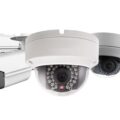When it comes to choosing a new phone, there are a lot of options out there. It can be tough to decide which one is right for you. Here are a few things to consider when choosing a new phone:
What is your budget?
There are a lot of great phones on the market, but they can range in price from around $100 to well over $1,000. It’s important to figure out how much you’re willing to spend on a new phone before you start shopping.
The price usually depends on the phone’s features, such as the processor, display, camera, and storage. If you’re looking for a cheap phone, you can usually find a good one for around $200. If you’re looking for a high-end phone, you’ll need to spend at least $500.
What is your carrier?
If you’re locked into a specific carrier, then you’ll want to make sure that the phone you’re considering is compatible with that carrier. Not all phones work with all carriers, so this is an important consideration.
What are your needs?
Are you looking for a phone with a great camera? A phone with a large screen? A phone that can handle a lot of apps? Figure out what you need from a phone before you start shopping.
What is your style?
Do you want a phone that’s sleek and stylish? Or do you prefer something that’s a bit more rugged? There are phones to suit all sorts of styles, so think about what you want your phone to look like.
Your smartphone should also have great key features such as:
A Good Battery Life
One of the most important aspects of a smartphone is battery life. No one wants their phone to die in the middle of the day, so phones need to have a long-lasting battery.
Most phones will last for at least a full day on a single charge. Some phones, such as the iPhone 11 Pro, can last for up to four days on a single charge. If you’re looking for a phone with good battery life, be sure to check the battery life specs before you buy so your phone lasts you all day.
A Sharp Display
Another important feature to look for is a sharp display.
The display is one of the most important aspects of a smartphone. It’s what you look at when you’re using the phone, so it needs to be clear and bright. Most smartphone displays are either LCD or OLED.
LCD stands for “liquid crystal display.” This type of display uses a backlight to illuminate the pixels, which are made of liquid crystals. OLED stands for “organic light-emitting diode.” This type of display doesn’t need a backlight because the pixels emit their light. OLED displays are usually brighter and more vibrant than LCDs.
You’ll want to be able to see your screen clearly, even in direct sunlight. Look for a phone with a high resolution and a bright display.
A Fast Processor
A fast processor is important for two reasons: first, it will make your phone feel snappier and more responsive; and second, it will allow you to run more demanding apps and games.
A Good Camera
The camera is one of the most popular features of a smartphone. The cameras on phones have gotten so good that many people now use their phones as their primary cameras.
Most smartphones have at least two cameras: a rear-facing camera and a front-facing camera. The rear-facing camera is the better of the two because it has a higher megapixel count and usually has optical image stabilization (OIS), which helps reduce blurriness. The front-facing camera is used for taking selfies and video chatting.
If you’re someone who likes to take photos, then a good camera is a must-have feature. Look for a phone with a high-resolution sensor and a good selection of lenses.
Fast Charging
A feature that’s becoming more and more common is fast charging, which can charge your phone from 0 to 100% in just a few hours. If you’re someone who is constantly on the go, this is a feature you’ll want to look for.
Splash Resistance
If you’re someone who is constantly dropping your phone, or you just want to be extra careful with it, look for a splash-resistant phone. This means it can withstand a few drops of water without being damaged.
An NFC Chip
An NFC chip is a near-field communication chip that allows you to do things like make payments with your phone or connect to other NFC-enabled devices. If you’re looking for a phone that’s future-proof, this is a feature you’ll want.
A Fingerprint Sensor
A fingerprint sensor is a great way to add an extra layer of security to your phone. It’s also a convenient way to unlock your phone if you don’t want to enter a passcode.
Storage
All of the photos, apps and other files on your phone take up space, so it’s important to have enough storage. Most smartphones have at least 32 GB of storage, which is enough for most people.
If you need more storage, you can usually buy a phone with 64 GB or 128 GB of storage. Some phones even have 256 GB of storage. If you run out of storage on your phone, you can usually free up some space by deleting old photos and apps that you don’t use anymore. You can also use cloud storage services, such as Google Drive or iCloud, to store files online.
Connectivity
Most smartphones come with a variety of connectivity options, such as Wi-Fi, Bluetooth, and NFC. Wi-Fi is used to connect to the internet, while Bluetooth is used to connect to wireless headphones, speakers, and other devices. NFC, or near-field communication, is used for things like mobile payments and connecting to compatible devices.
Not all phones have all three connectivity options. For example, the iPhone 11 Pro doesn’t have NFC, while the Google Pixel 3a does. Be sure to check the connectivity options before you buy a phone.
A Headphone Jack
Last but not least, a headphone jack is an important feature, especially if you like to listen to music or podcasts on your phone. Many newer phones are ditching the headphone jack in favour of Bluetooth, but if you prefer a wired connection, make sure your phone has a headphone jack.
Conclusion
Smartphones are amazing devices that we use for a variety of tasks, from entertainment to productivity. If you’re in the market for a new phone, be sure to consider the features that are important to you.











